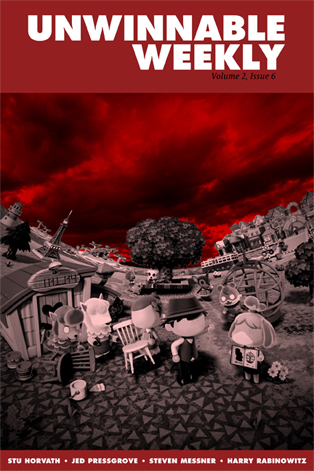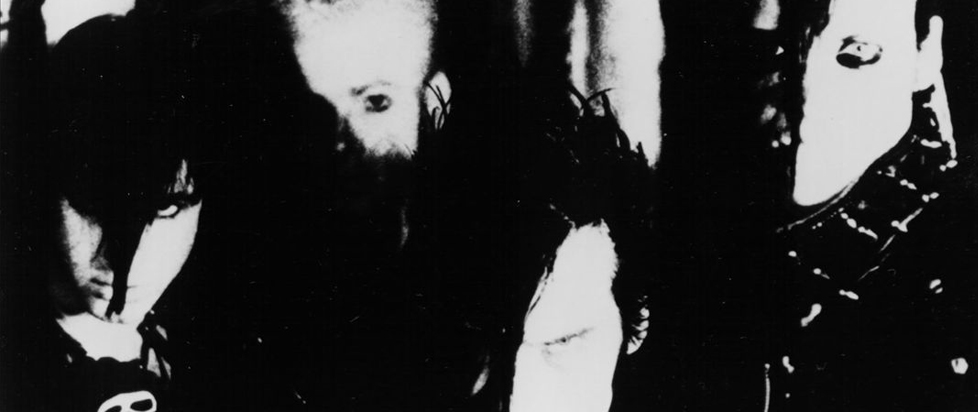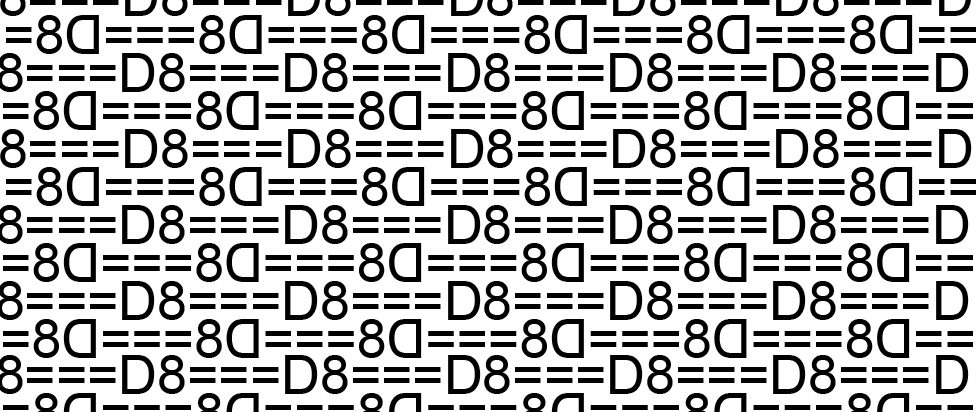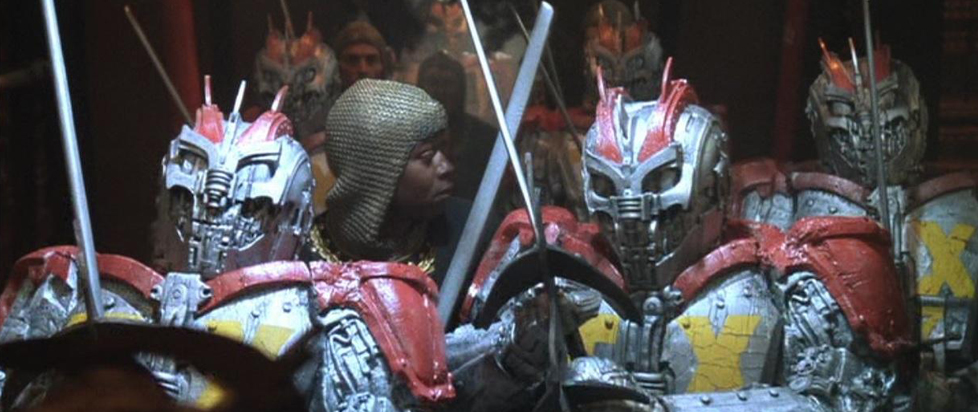
The Dread of Knowing in Until Dawn
The Burnt Offering is where Stu Horvath thinks too much in public so he can live a quieter life in private.
———
This is a reprint of the letter from the editor in Unwinnable Weekly Issue Fifty-Eight. You can buy Issue Fifty-Eight individually now, or purchase a one-month subscription to make sure you never miss an issue!
———
Hi there,
I got a copy of Supermassive Games’ Until Dawn in the mail the other day. I knew nothing about the game at the time, hadn’t even heard of it. The cover, featuring a skull-shaped hourglass pouring snow on what looks like a ski lodge, seemed on par, quality-wise, with a hacked out paperback thriller or the posters for obscure B-movie slashers that choke the Netflix horror queue.
Learning the basics of the game didn’t do much for my enthusiasm. It is essentially a game in the style of Heavy Rain – lots of timed events and minimal interactions, populated by a cast of digitally rendered actors including Hayden Panettierre, Peter Stormare and Rami Malek. Lots of dead eyes, puffy cheeks and mouths filled with improbably sharp, perfect looking teeth.
The aim of the game is to help all eight of these not quite likeable “teenagers” survive the night at an isolated mountaintop estate.
Sounds awful, right?
It isn’t anywhere near awful. It is, in fact, the best horror game I’ve played in a long time. Hell, it’s one of the best horror movies I’ve seen in a long time.
I’m not going to get into the details of the story, because they are irrelevant compared to the way Until Dawn handles the telling. Key choices you make with any given character can have unexpected and far-reaching consequences later on. Tease a pal in Chapter One and that pal might not let you in the door to safety in Chapter Eight. That sort of thing. So far, nothing new in the realm of branching videogame narratives.
Until Dawn’s novelty is that these causes and effects aren’t entirely hidden from the player. When you make one of these key decisions, the game immediately tells you that it will have a butterfly effect. Additionally, characters can find small Native American totems that give them premonitions of the future. These visions aren’t set in stone. They are merely possible, depending on whether you step on the wrong butterfly.
 The result is strange. As you play, you know that some of your decisions have serious consequences. You even get hints as to what those consequences may be. What you don’t have is any notion of how, or even if, the information you have links up. You stumble through the game with a heightened awareness of the importance of your actions while lacking a clear way to capitalize on your foreknowledge.
The result is strange. As you play, you know that some of your decisions have serious consequences. You even get hints as to what those consequences may be. What you don’t have is any notion of how, or even if, the information you have links up. You stumble through the game with a heightened awareness of the importance of your actions while lacking a clear way to capitalize on your foreknowledge.
As the causes and effects fall into place, you perceive of the range of possibilities, the forks in the road. With that comes a sense of how you could have chosen differently. This terrible weight of hindsight begins as a trickle of awareness but eventually roars into a cascade of alternate realities.
It fills every action, every choice, with an almost paralyzing sense of dread.
There is no way to reload your game in Until Dawn. You can’t go back, can’t change your choices. You can only trudge to the game’s inevitable conclusion. The only way to change the outcome is to play again, but there is no guarantee that the new knowledge you bring into the game won’t have other catastrophic effects.
Until Dawn is a tiny, ten-hour slice of the multiverse. As the player, you have the godlike ability to guide and influence these characters and their world, but the amount of information you have to manage is crushing. You’re not a god, you’re a demiurge, struggling with power you neither understand nor fully control. The effect is one of bleak futility.
It’s wonderful.
* * *
This week, I continued my series of interviews with influential modern horror writers, chatting up Stephen Graham Jones. There a bit of kismet at work here, because there is much to compare and contrast between Until Dawn and his novel Demon Theory. If you enjoy one, I can almost guarantee you will enjoy the other.
Steve Messner delivers our cover story this week, a harrowing tale of Animal Crossing and how it nearly ruined his relationship. Jed Pressgrove gushes over the Marxist undercurrents of Cosmo-D’s game Off-Peak. Unwinnable’s Editorial Assistant Harry Rabinowitz daydreams his own private Final Fantasy XIII.
Also, if you are at Pax Prime 2015, come out to our party Friday night! We’ve joining forces with our friends at GungHo and Indie MegaBooth to take over Axis Pioneer Square on August 28. There will be games – Galak-Z, Memory of a Broken Dimension, Republique, Dark Dreams Don’t Die, Gang Beasts and Inversus – playable at the gallery. Our good buddy Matt Hunter will be spinning tunes. We’ll have sweet, sweet Unwinnable T-shirts for sale, giveaways, booze, food and just a hint of mayhem. Couldn’t ask for a better night out, really.
Check out our Eventbrite page or the Facebook event page for more information. Registration is closed, but that doesn’t mean you can’t come hang out – you might just have to stand on line for a little bit.
That’s about it for this week. If you are at PAX, stay safe and have an excellent show. If you aren’t, like me, have a great regular old weekend.
Stu Horvath,
Jersey City, New Jersey
August 27, 2015





